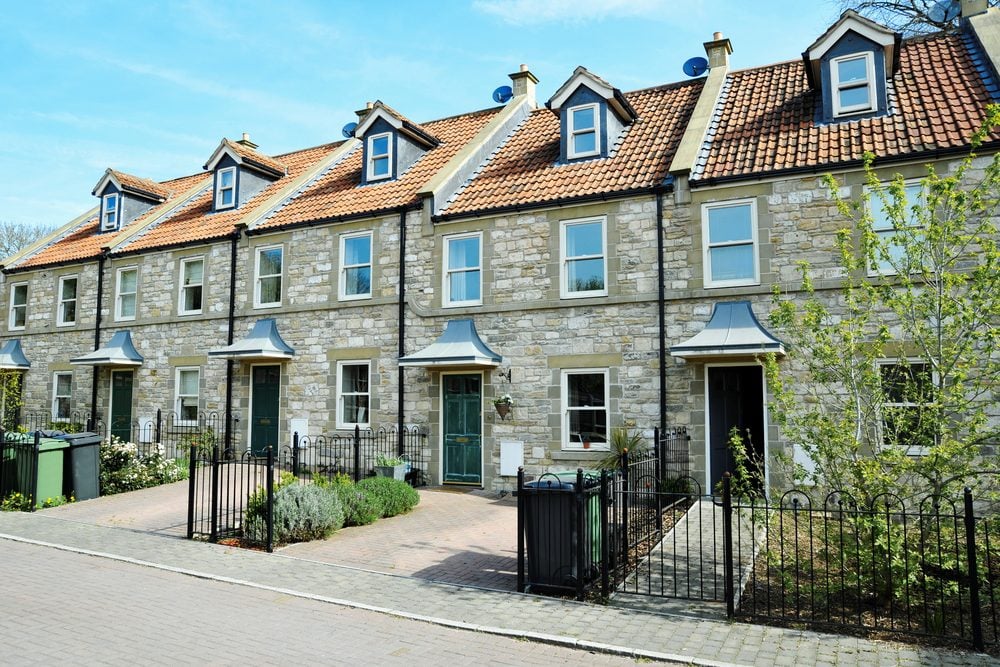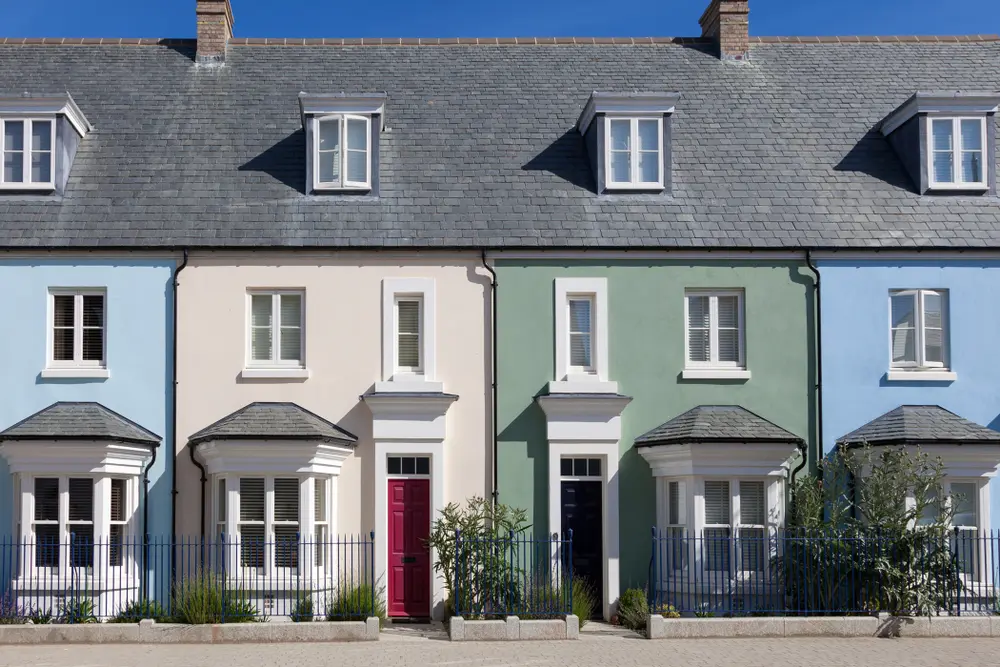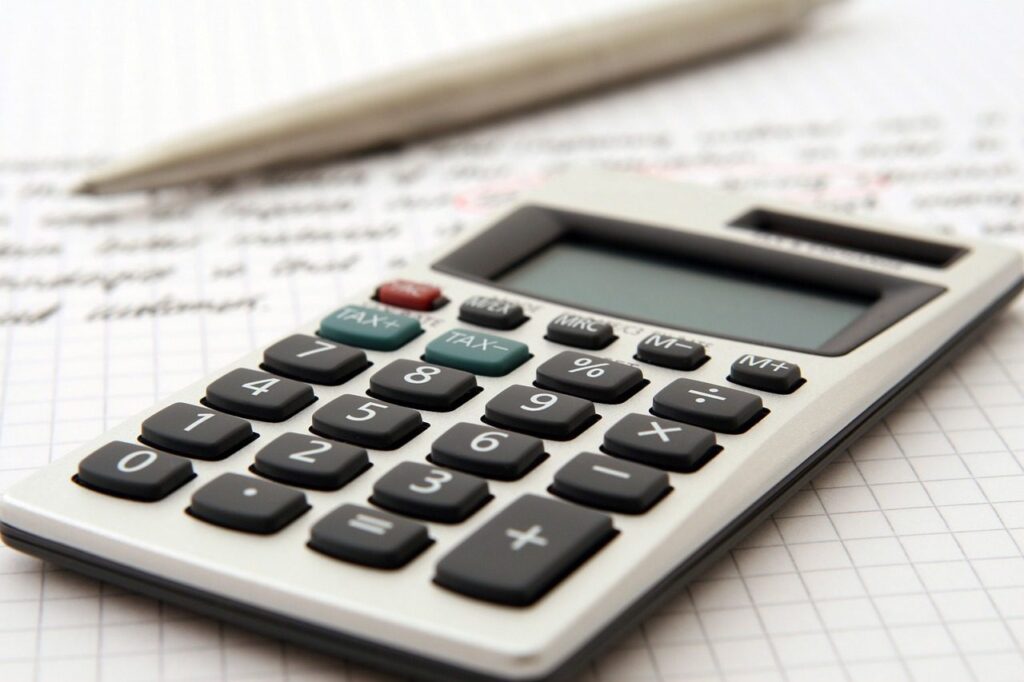
Property tax for homebuyers and investors
Learn more about what you could owe
Being prepared for any taxes you may need to pay is crucial when it comes to successful property investment, as there is much more to buying a property than just the purchase price.
Whether you’re buying a home or investing in a buy-to-let property, a range of different taxes will apply, and staying informed means you won’t face any nasty surprises in the future. Read on to learn more about which taxes might affect you when you come to make your investment.
If you want to quickly work out how much stamp duty you’ll owe, use our handy stamp duty calculator.
Array
(
[ID] => 6087524
[id] => 6087524
[title] => Exterior View Of Terraced Stone Cottages On A Street
[filename] => shutterstock_249648727.jpg
[filesize] => 202781
[url] => https://www.buyassociationgroup.com/en-gb/wp-content/uploads/sites/2/2022/06/shutterstock_249648727.jpg
[link] => https://www.buyassociationgroup.com/en-gb/advice/insurance/exteriorviewofterracedstonecottagesonastreetin/
[alt] => Exterior View Of Terraced Stone Cottages On A Street
[author] => 1096
[description] =>
[caption] =>
[name] => exteriorviewofterracedstonecottagesonastreetin
[status] => inherit
[uploaded_to] => 4025701
[date] => 2022-06-17 09:01:30
[modified] => 2022-11-16 15:55:50
[menu_order] => 0
[mime_type] => image/jpeg
[type] => image
[subtype] => jpeg
[icon] => https://www.buyassociationgroup.com/en-gb/wp-includes/images/media/default.png
[width] => 1000
[height] => 667
[sizes] => Array
(
[thumbnail] => https://www.buyassociationgroup.com/en-gb/wp-content/uploads/sites/2/2022/06/shutterstock_249648727-150x150.jpg
[thumbnail-width] => 150
[thumbnail-height] => 150
[medium] => https://www.buyassociationgroup.com/en-gb/wp-content/uploads/sites/2/2022/06/shutterstock_249648727-300x200.jpg
[medium-width] => 300
[medium-height] => 200
[medium_large] => https://www.buyassociationgroup.com/en-gb/wp-content/uploads/sites/2/2022/06/shutterstock_249648727-768x512.jpg
[medium_large-width] => 768
[medium_large-height] => 512
[large] => https://www.buyassociationgroup.com/en-gb/wp-content/uploads/sites/2/2022/06/shutterstock_249648727.jpg
[large-width] => 1000
[large-height] => 667
[1536x1536] => https://www.buyassociationgroup.com/en-gb/wp-content/uploads/sites/2/2022/06/shutterstock_249648727.jpg
[1536x1536-width] => 1000
[1536x1536-height] => 667
[2048x2048] => https://www.buyassociationgroup.com/en-gb/wp-content/uploads/sites/2/2022/06/shutterstock_249648727.jpg
[2048x2048-width] => 1000
[2048x2048-height] => 667
[post-thumbnail] => https://www.buyassociationgroup.com/en-gb/wp-content/uploads/sites/2/2022/06/shutterstock_249648727.jpg
[post-thumbnail-width] => 125
[post-thumbnail-height] => 83
[landscape_600x400] => https://www.buyassociationgroup.com/en-gb/wp-content/uploads/sites/2/2022/06/shutterstock_249648727-600x400.jpg
[landscape_600x400-width] => 600
[landscape_600x400-height] => 400
[landscape_500x300] => https://www.buyassociationgroup.com/en-gb/wp-content/uploads/sites/2/2022/06/shutterstock_249648727-500x300.jpg
[landscape_500x300-width] => 500
[landscape_500x300-height] => 300
[landscape_750x350] => https://www.buyassociationgroup.com/en-gb/wp-content/uploads/sites/2/2022/06/shutterstock_249648727-750x350.jpg
[landscape_750x350-width] => 750
[landscape_750x350-height] => 350
)
)

Stamp duty
All residential properties bought in England and Northern Ireland are subject to stamp duty land tax if they are above a certain price (currently £125,000 for your main residence, as of April 2025).
| Property or lease premium or transfer value | SDLT rate |
|---|---|
| Up to £125,000 | Zero |
| The next £125,000 (the portion from £125,001 to £250,000) | 2% |
| The next £675,000 (the portion from £250,001 to £925,000) | 5% |
| The next £575,000 (the portion from £925,001 to £1.5 million) | 10% |
| The remaining amount (the portion above £1.5 million) | 12% |
For property investors and second homeowners, a 5% surcharge also applies for any additional residential property purchases, and this still applies if your main residence is outside the UK. Investors who are based overseas are subject to a 2% stamp duty surcharge.
Use our stamp duty calculator to work out how much you’ll owe.
Array
(
[ID] => 6086452
[id] => 6086452
[title] => property-investment-row-of-houses
[filename] => shutterstock_1515093797-1.webp
[filesize] => 86876
[url] => https://www.buyassociationgroup.com/en-gb/wp-content/uploads/sites/2/2022/04/shutterstock_1515093797-1.webp
[link] => https://www.buyassociationgroup.com/en-gb/advice/property-investment-starter-course/rowofcolorfulenglishhouses/
[alt] => property-investment-row-of-houses buy-to-let mortgage
[author] => 1096
[description] =>
[caption] =>
[name] => rowofcolorfulenglishhouses
[status] => inherit
[uploaded_to] => 11542
[date] => 2022-04-25 12:58:59
[modified] => 2023-12-16 20:42:53
[menu_order] => 0
[mime_type] => image/webp
[type] => image
[subtype] => webp
[icon] => https://www.buyassociationgroup.com/en-gb/wp-includes/images/media/default.png
[width] => 1000
[height] => 667
[sizes] => Array
(
[thumbnail] => https://www.buyassociationgroup.com/en-gb/wp-content/uploads/sites/2/2022/04/shutterstock_1515093797-1-150x150.webp
[thumbnail-width] => 150
[thumbnail-height] => 150
[medium] => https://www.buyassociationgroup.com/en-gb/wp-content/uploads/sites/2/2022/04/shutterstock_1515093797-1-300x200.webp
[medium-width] => 300
[medium-height] => 200
[medium_large] => https://www.buyassociationgroup.com/en-gb/wp-content/uploads/sites/2/2022/04/shutterstock_1515093797-1-768x512.webp
[medium_large-width] => 768
[medium_large-height] => 512
[large] => https://www.buyassociationgroup.com/en-gb/wp-content/uploads/sites/2/2022/04/shutterstock_1515093797-1.webp
[large-width] => 1000
[large-height] => 667
[1536x1536] => https://www.buyassociationgroup.com/en-gb/wp-content/uploads/sites/2/2022/04/shutterstock_1515093797-1.webp
[1536x1536-width] => 1000
[1536x1536-height] => 667
[2048x2048] => https://www.buyassociationgroup.com/en-gb/wp-content/uploads/sites/2/2022/04/shutterstock_1515093797-1.webp
[2048x2048-width] => 1000
[2048x2048-height] => 667
[post-thumbnail] => https://www.buyassociationgroup.com/en-gb/wp-content/uploads/sites/2/2022/04/shutterstock_1515093797-1.webp
[post-thumbnail-width] => 125
[post-thumbnail-height] => 83
[landscape_600x400] => https://www.buyassociationgroup.com/en-gb/wp-content/uploads/sites/2/2022/04/shutterstock_1515093797-1-600x400.webp
[landscape_600x400-width] => 600
[landscape_600x400-height] => 400
[landscape_500x300] => https://www.buyassociationgroup.com/en-gb/wp-content/uploads/sites/2/2022/04/shutterstock_1515093797-1-500x300.webp
[landscape_500x300-width] => 500
[landscape_500x300-height] => 300
[landscape_750x350] => https://www.buyassociationgroup.com/en-gb/wp-content/uploads/sites/2/2022/04/shutterstock_1515093797-1-750x350.webp
[landscape_750x350-width] => 750
[landscape_750x350-height] => 350
)
)

Capital gains tax
When selling an asset, capital gains tax (CGT) might be payable on any profits made, with the exception of it being your main residential property. For property investors and those who own more than one home, there might be a bill to pay, and this will depend on a person’s total UK income and chargeable gains for the year.
Everyone gets a CGT allowance, which is currently £3,00 for an individual (2025/26 tax year). Profits made above this rate are what may be subject to the tax. Basic rate taxpayers will currently pay 18% CGT on profits from a property sale, while higher and additional rate taxpayers pay 24% CGT on property profits.
A number of exemptions and tax reliefs also apply, so it is important to get advice from an accountant or tax advisor, or refer to the government’s website for further clarification on how much you might owe.
Array
(
[ID] => 6095172
[id] => 6095172
[title] => Real estate agents explain the document for customers who come to contact to buy a house, buy or sell real estate concept
[filename] => mortgage-brokers.jpg
[filesize] => 939124
[url] => https://www.buyassociationgroup.com/en-gb/wp-content/uploads/sites/2/2023/07/mortgage-brokers.jpg
[link] => https://www.buyassociationgroup.com/en-gb/news/buy-to-let-rates/real-estate-agents-explain-the-document-for-customers-who-come-to-contact-to-buy-a-house-buy-or-sell-real-estate-concept/
[alt] => buy-to-let mortgage rates mortgages mortgage market
[author] => 1069
[description] =>
[caption] => Real estate agents explain the document for customers who come to contact to buy a house, buy or sell real estate concept
[name] => real-estate-agents-explain-the-document-for-customers-who-come-to-contact-to-buy-a-house-buy-or-sell-real-estate-concept
[status] => inherit
[uploaded_to] => 6095164
[date] => 2023-07-27 16:26:01
[modified] => 2025-01-03 16:37:39
[menu_order] => 0
[mime_type] => image/jpeg
[type] => image
[subtype] => jpeg
[icon] => https://www.buyassociationgroup.com/en-gb/wp-includes/images/media/default.png
[width] => 2550
[height] => 1176
[sizes] => Array
(
[thumbnail] => https://www.buyassociationgroup.com/en-gb/wp-content/uploads/sites/2/2023/07/mortgage-brokers-150x150.jpg
[thumbnail-width] => 150
[thumbnail-height] => 150
[medium] => https://www.buyassociationgroup.com/en-gb/wp-content/uploads/sites/2/2023/07/mortgage-brokers-300x138.jpg
[medium-width] => 300
[medium-height] => 138
[medium_large] => https://www.buyassociationgroup.com/en-gb/wp-content/uploads/sites/2/2023/07/mortgage-brokers-768x354.jpg
[medium_large-width] => 768
[medium_large-height] => 354
[large] => https://www.buyassociationgroup.com/en-gb/wp-content/uploads/sites/2/2023/07/mortgage-brokers-1024x472.jpg
[large-width] => 1024
[large-height] => 472
[1536x1536] => https://www.buyassociationgroup.com/en-gb/wp-content/uploads/sites/2/2023/07/mortgage-brokers-1536x708.jpg
[1536x1536-width] => 1536
[1536x1536-height] => 708
[2048x2048] => https://www.buyassociationgroup.com/en-gb/wp-content/uploads/sites/2/2023/07/mortgage-brokers-2048x944.jpg
[2048x2048-width] => 2048
[2048x2048-height] => 944
[post-thumbnail] => https://www.buyassociationgroup.com/en-gb/wp-content/uploads/sites/2/2023/07/mortgage-brokers-125x125.jpg
[post-thumbnail-width] => 125
[post-thumbnail-height] => 125
[landscape_600x400] => https://www.buyassociationgroup.com/en-gb/wp-content/uploads/sites/2/2023/07/mortgage-brokers-600x400.jpg
[landscape_600x400-width] => 600
[landscape_600x400-height] => 400
[landscape_500x300] => https://www.buyassociationgroup.com/en-gb/wp-content/uploads/sites/2/2023/07/mortgage-brokers-500x300.jpg
[landscape_500x300-width] => 500
[landscape_500x300-height] => 300
[landscape_750x350] => https://www.buyassociationgroup.com/en-gb/wp-content/uploads/sites/2/2023/07/mortgage-brokers-750x350.jpg
[landscape_750x350-width] => 750
[landscape_750x350-height] => 350
)
)

Income tax
If you rent out a property, you will probably need to pay income tax on your profits, depending how much you make and your personal circumstances. Profit is based on what you’ve got left from your rental income after taking away expenses or allowances you can claim. Changes to Section 24 of the Finance Act mean that since 2020, buy-to-let landlords have been able to claim a tax credit based on 20% of their mortgage interest payments.
For landlords and property investors, you need to register your profits on a self-assessment tax return to HMRC, with different ways to register depending on whether you are self-employed or a sole trader, not self-employed, or a member of a partnership. Non-UK residents must also pay income tax on any UK earnings from rental income.
Array
(
[ID] => 19662
[id] => 19662
[title] => tax bill
[filename] => tax-bill.jpg
[filesize] => 107688
[url] => https://www.buyassociationgroup.com/en-gb/wp-content/uploads/sites/2/2018/08/tax-bill.jpg
[link] => https://www.buyassociationgroup.com/en-gb/advice/tax-stamp-duty/tax-bill/
[alt] => tax
[author] => 1069
[description] =>
[caption] =>
[name] => tax-bill
[status] => inherit
[uploaded_to] => 4023107
[date] => 2018-08-01 15:35:02
[modified] => 2022-12-15 13:44:58
[menu_order] => 0
[mime_type] => image/jpeg
[type] => image
[subtype] => jpeg
[icon] => https://www.buyassociationgroup.com/en-gb/wp-includes/images/media/default.png
[width] => 1280
[height] => 853
[sizes] => Array
(
[thumbnail] => https://www.buyassociationgroup.com/en-gb/wp-content/uploads/sites/2/2018/08/tax-bill-150x150.jpg
[thumbnail-width] => 150
[thumbnail-height] => 150
[medium] => https://www.buyassociationgroup.com/en-gb/wp-content/uploads/sites/2/2018/08/tax-bill-300x200.jpg
[medium-width] => 300
[medium-height] => 200
[medium_large] => https://www.buyassociationgroup.com/en-gb/wp-content/uploads/sites/2/2018/08/tax-bill-768x512.jpg
[medium_large-width] => 768
[medium_large-height] => 512
[large] => https://www.buyassociationgroup.com/en-gb/wp-content/uploads/sites/2/2018/08/tax-bill-1024x682.jpg
[large-width] => 1024
[large-height] => 682
[1536x1536] => https://www.buyassociationgroup.com/en-gb/wp-content/uploads/sites/2/2018/08/tax-bill.jpg
[1536x1536-width] => 1280
[1536x1536-height] => 853
[2048x2048] => https://www.buyassociationgroup.com/en-gb/wp-content/uploads/sites/2/2018/08/tax-bill.jpg
[2048x2048-width] => 1280
[2048x2048-height] => 853
[post-thumbnail] => https://www.buyassociationgroup.com/en-gb/wp-content/uploads/sites/2/2018/08/tax-bill.jpg
[post-thumbnail-width] => 125
[post-thumbnail-height] => 83
[landscape_600x400] => https://www.buyassociationgroup.com/en-gb/wp-content/uploads/sites/2/2018/08/tax-bill-600x400.jpg
[landscape_600x400-width] => 600
[landscape_600x400-height] => 400
[landscape_500x300] => https://www.buyassociationgroup.com/en-gb/wp-content/uploads/sites/2/2018/08/tax-bill-500x300.jpg
[landscape_500x300-width] => 500
[landscape_500x300-height] => 300
[landscape_750x350] => https://www.buyassociationgroup.com/en-gb/wp-content/uploads/sites/2/2018/08/tax-bill-750x350.jpg
[landscape_750x350-width] => 750
[landscape_750x350-height] => 350
)
)

Corporation tax
Investing in and trading property as a limited company rather than an individual has become an increasingly popular way of reducing your tax bill due to the Section 24 changes being rolled in. If you own a property or properties through limited company, your profits will be subject to corporation tax rather than income tax, which can be much lower. They pay 19% on profits up to £50,000, 25% on profits over £250,000, while those with profits between these two amounts pay tax at the main rate, reduced by a marginal relief.
However, there are a number of factors to take into account before deciding to invest using a limited company, one being that mortgages for limited companies tend to be more expensive and harder to obtain, while you will also have to pay for the additional accountancy costs of running a company.
To decide whether this is the best route for your property investments, speak to an accountant or financial adviser, or let us put you in touch with our specialist partner.
Array
(
[ID] => 6039522
[id] => 6039522
[title] => Modern real estate
[filename] => build-to-rent-rental-property-scaled-1.jpg
[filesize] => 438879
[url] => https://www.buyassociationgroup.com/en-gb/wp-content/uploads/sites/2/2022/01/build-to-rent-rental-property-scaled-1.jpg
[link] => https://www.buyassociationgroup.com/en-gb/advice/tax-stamp-duty/modern-real-estate/
[alt] => build-to-rent property investors
[author] => 1
[description] =>
[caption] => House building and city construction concept: evening outdoor urban view of modern real estate homes. See also:
[name] => modern-real-estate
[status] => inherit
[uploaded_to] => 4023107
[date] => 2022-01-31 09:42:32
[modified] => 2023-02-10 12:40:32
[menu_order] => 0
[mime_type] => image/jpeg
[type] => image
[subtype] => jpeg
[icon] => https://www.buyassociationgroup.com/en-gb/wp-includes/images/media/default.png
[width] => 2048
[height] => 1365
[sizes] => Array
(
[thumbnail] => https://www.buyassociationgroup.com/en-gb/wp-content/uploads/sites/2/2022/01/build-to-rent-rental-property-scaled-1-150x150.jpg
[thumbnail-width] => 150
[thumbnail-height] => 150
[medium] => https://www.buyassociationgroup.com/en-gb/wp-content/uploads/sites/2/2022/01/build-to-rent-rental-property-scaled-1-300x200.jpg
[medium-width] => 300
[medium-height] => 200
[medium_large] => https://www.buyassociationgroup.com/en-gb/wp-content/uploads/sites/2/2022/01/build-to-rent-rental-property-scaled-1-768x512.jpg
[medium_large-width] => 768
[medium_large-height] => 512
[large] => https://www.buyassociationgroup.com/en-gb/wp-content/uploads/sites/2/2022/01/build-to-rent-rental-property-scaled-1-1024x683.jpg
[large-width] => 1024
[large-height] => 683
[1536x1536] => https://www.buyassociationgroup.com/en-gb/wp-content/uploads/sites/2/2022/01/build-to-rent-rental-property-scaled-1-1536x1024.jpg
[1536x1536-width] => 1536
[1536x1536-height] => 1024
[2048x2048] => https://www.buyassociationgroup.com/en-gb/wp-content/uploads/sites/2/2022/01/build-to-rent-rental-property-scaled-1.jpg
[2048x2048-width] => 2048
[2048x2048-height] => 1365
[post-thumbnail] => https://www.buyassociationgroup.com/en-gb/wp-content/uploads/sites/2/2022/01/build-to-rent-rental-property-scaled-1.jpg
[post-thumbnail-width] => 125
[post-thumbnail-height] => 83
[landscape_600x400] => https://www.buyassociationgroup.com/en-gb/wp-content/uploads/sites/2/2022/01/build-to-rent-rental-property-scaled-1-600x400.jpg
[landscape_600x400-width] => 600
[landscape_600x400-height] => 400
[landscape_500x300] => https://www.buyassociationgroup.com/en-gb/wp-content/uploads/sites/2/2022/01/build-to-rent-rental-property-scaled-1-500x300.jpg
[landscape_500x300-width] => 500
[landscape_500x300-height] => 300
[landscape_750x350] => https://www.buyassociationgroup.com/en-gb/wp-content/uploads/sites/2/2022/01/build-to-rent-rental-property-scaled-1-750x350.jpg
[landscape_750x350-width] => 750
[landscape_750x350-height] => 350
)
)

Property tax for non-UK residents
Non-UK residents, expats and foreign nationals have to pay tax on the profits from any rental income they make from property owned in the UK. After deductibles (including things like property management, repairs and maintenance, wear and tear and insurance), the rate of income tax charged on these profits is between 20% and 45%, depending on the total amount. If profits are below a certain level, no income tax may be due, so check the UK government website for the latest details.
Whether you pay tax in your country of residence as well depends on the country’s tax agreement with the UK, so it is best to contact your local tax authority.
In the UK, all properties you own are treated as a single entity for tax purposes. Foreign investors can apply to be treated the same way as a UK resident landlords, meaning you include your calculation of rental income on an annual tax return and send to HMRC. Payments are made in two installments (31 January and 31 July), with the tax year running from 6 April to 5 April the following year.
If you do not apply to be treated as a UK landlord, your letting agent or property manager will deduct 20% from any rent collected, after expenses, and pay it to the Inland Revenue before returning your profits to you.
Capital gains tax applies to profits made from property sales in the same way as for UK residents, as does stamp duty (which includes an additional 2% stamp duty surcharge on top of the rate paid by UK residents). For more information on any of the above, speak to an expert or visit the government’s website.

FIRST FOR NEWS AND KNOWLEDGE.
Receive trending news straight to your inbox and stay up to date on all of the property market trends and advice.
Established since 2005 we are a leading voice of authority and commentary on the UK property market. Our news is trusted by Apple News & Google News.
- UK housing market
- Mortgage & money
- Buy-to-let landlords
- Guides & advice
